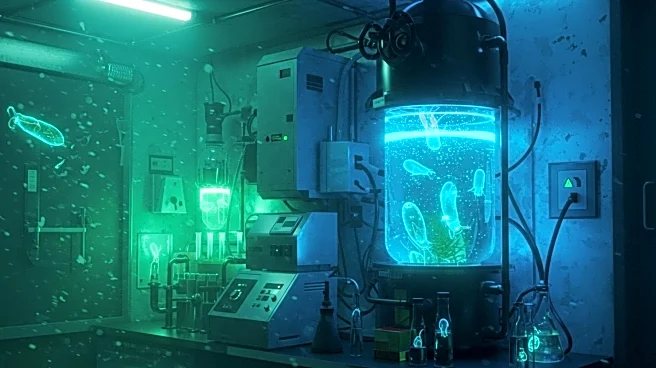What is the story about?
What's Happening?
UMAMI Bioworks, a Singapore-based startup specializing in cultivated seafood, has expanded its cell cultivation platform to produce marine bioactives. The company is focusing on Polydeoxyribonucleotide (PDRN), a high-value ingredient used in skincare, wound healing, and regenerative medicine. Traditionally extracted from salmon sperm, PDRN presents supply consistency issues, ethical concerns, and biosecurity risks. UMAMI Bioworks aims to produce cosmetic-grade PDRN in a bioreactor, eliminating the need for animal extraction. The company expects to have commercial-ready PDRN available by Q4, with plans to expand into other categories. This development is part of UMAMI's broader strategy to create near-term commercial traction while building long-term platform value.
Why It's Important?
The expansion into marine bioactives represents a significant shift in the biotechnology and cosmetics industries. By producing PDRN in a bioreactor, UMAMI Bioworks addresses ethical concerns and supply bottlenecks associated with animal-derived ingredients. This innovation could lead to more sustainable and scalable production methods, potentially reducing reliance on animal harvest and expanding market opportunities. The consistent and traceable supply of PDRN is crucial for high-performance formulations, positioning UMAMI Bioworks to compete on price and grow the market. This development also highlights the growing importance of biotechnology in addressing supply chain challenges and ethical considerations in product development.
What's Next?
UMAMI Bioworks plans to continue scaling its production capabilities and expand its product offerings. The company is preparing regulatory submissions for its marine bioactives in Asia-Pacific markets, with plans to enter other jurisdictions. Additionally, UMAMI is working on pilot studies for its pathogen testing tool for aquaculture, aiming to improve sustainability and reduce losses. The company is also advancing its cultivated seafood programs, with demo-scale facilities in Singapore and Malaysia. As UMAMI Bioworks continues to innovate, it may face regulatory challenges and competition from other biotechnology firms.















